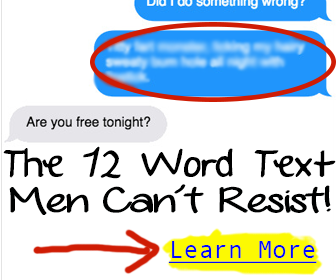Introduction:
Communication is the foundation of any healthy relationship. It forms the basis for understanding, connection, and intimacy between partners. Effective communication skills are essential for building a strong and thriving relationship, whether it’s a romantic partnership, a friendship, or a family relationship. In this article, we will explore seven essential communication skills that can help create and maintain a healthy relationship.
Table of Contents
1. Active Listening
Listening is a fundamental communication skill that is often overlooked. Active listening goes beyond just hearing the words being spoken, but also involves understanding the emotions, intentions, and underlying messages behind those words. It requires giving your partner your full attention and being present at the moment without interrupting or formulating responses in your mind.
To practice active listening, make sure to maintain eye contact, a nod to show understanding, and avoid distractions such as checking your phone or watching TV. Avoid interrupting your partner and refrain from finishing their sentences. Instead, focus on truly understanding their perspective and feelings. Once your partner has finished speaking, summarize what they said to ensure you understood them correctly, and then express your thoughts and feelings in response. This can help prevent misunderstandings and promote effective communication in your relationship.
2. Expressing Yourself Clearly
Expressing yourself clearly is equally important in communication. It involves being able to articulate your thoughts, feelings and needs in a concise and respectful manner. When expressing yourself, use “I” statements to communicate your own experiences and emotions without blaming or criticizing your partner. For example, say “I feel hurt when you cancel plans without telling me” instead of “You always cancel plans and it’s frustrating.” This can help avoid defensive responses and promote open and honest communication.


Be mindful of your tone of voice and body language, as they can convey messages beyond your words. Avoid using negative or accusatory language, and instead focus on expressing your needs and desires with kindness and respect. Remember that effective communication is a two-way street, so be open to receiving feedback from your partner and be willing to adjust your communication style accordingly.
3. Empathy and Understanding
Empathy is the ability to understand and share the feelings of another person. It’s an essential communication skill that promotes emotional connection and intimacy in relationships. When you show empathy towards your partner, you are validating their emotions and experiences, which can foster a sense of trust and closeness.
Practice empathy by actively trying to understand your partner’s perspective without judgment. Put yourself in their shoes and imagine how they might be feeling. Reflect back on what you heard them say and acknowledge their emotions. For example, say “It sounds like you’re feeling really stressed about work” or “I can understand why you might be upset.” This can help your partner feel heard and understood, and promote a healthy and empathetic communication dynamic in your relationship.
4. Conflict Resolution
Conflict is inevitable in any relationship, but how you handle it can make all the difference. Healthy communication skills are crucial in resolving conflicts in a constructive and respectful manner. Avoiding conflicts or engaging in destructive communication patterns, such as yelling or name-calling, can escalate the situation and damage the relationship.
When conflicts arise, approach them with a calm and open mindset. Avoid blaming or criticizing your partner, and instead focus on expressing your feelings and needs using “I” statements. Practice active listening and try to understand your partner’s perspective. Look for common ground and seek solutions together.


It’s also important to take breaks if needed, especially if emotions are running high. Stepping away from the situation for a short period of time can help you both gain perspective and come back to the conversation with a calmer mindset. Remember that conflict resolution is not about winning or losing, but finding a resolution that works for both partners and strengthens the relationship.
5. Non-Verbal Communication
Communication is not only about verbal exchanges, but also involves non-verbal cues such as body language, facial expressions, gestures, and tone of voice. These non-verbal cues can convey important messages in a relationship and can greatly impact the effectiveness of communication.
Being aware of your non-verbal communication and paying attention to your partner’s non-verbal cues can enhance your communication skills. For example, maintaining eye contact, nodding to show understanding, and using open body language can signal that you are attentive and engaged in the conversation. On the other hand, crossing your arms, avoiding eye contact, or displaying negative facial expressions can convey defensiveness or disinterest.
It’s important to be mindful of your non-verbal communication and ensure that it aligns with your intended message. Being aware of your partner’s non-verbal cues can also help you better understand their emotions and reactions, and respond accordingly. Developing strong non-verbal communication skills can significantly enhance your overall communication and foster a healthy relationship.
6. Respectful Disagreement
Disagreements and differences of opinion are natural in any relationship, but how you handle them can impact the health of your relationship. It’s important to remember that it’s okay to have different perspectives and opinions, and respectful disagreement can actually foster growth and understanding in a relationship.


When you encounter a disagreement, avoid resorting to personal attacks, criticism, or defensiveness. Instead, strive to engage in a respectful and constructive discussion. Listen to your partner’s perspective with an open mind and express your own thoughts and feelings without belittling or demeaning your partner.
It’s also important to be mindful of your tone of voice and language during disagreements. Avoid using harsh or derogatory language and instead strive to communicate respectfully and calmly. Remember that the goal is not to prove who is right or wrong, but to find a solution or a compromise that respects both partners’ perspectives. Respectful disagreement can lead to mutual understanding and strengthen the bond between partners.
7. Emotional Awareness and Regulation
Emotions play a significant role in communication and relationships. Being emotionally aware and able to regulate your emotions can greatly impact the effectiveness of your communication skills. Emotions can sometimes cloud judgment, trigger defensive responses, or hinder effective communication.
Finally! The Biggest Secret to becoming a man’s deepest Passion and Priority in life: Learn More
Developing emotional awareness involves understanding your own emotions and being able to identify and manage them in a healthy and constructive way. It also involves being able to recognize and validate your partner’s emotions. Emotional regulation involves managing your emotions in a way that allows you to communicate effectively and respectfully.
Practicing emotional awareness and regulation can help you communicate more effectively in your relationship. It allows you to express your emotions in a constructive manner and also helps you understand and respond to your partner’s emotions with empathy and compassion. Developing emotional intelligence can greatly enhance your communication skills and create a safe and supportive environment for healthy communication in your relationship.


In conclusion:
effective communication is a cornerstone of a healthy and thriving relationship. It requires active listening, clear expression, empathy and understanding, conflict resolution, non-verbal communication, respectful disagreement, and emotional awareness and regulation. Developing these essential communication skills can greatly enhance the quality of your relationship, foster connection, and intimacy, and resolve conflicts in a constructive and respectful manner. Practice these skills consistently and strive to communicate with kindness, respect, and empathy to create a strong foundation for a healthy and fulfilling relationship.



